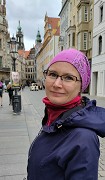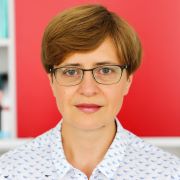Participants
Tatiana Romashko2; Vera Zvereva2; Kapitolina Fedorova1; Jade McGlynn3; Tatiana Golova4; 1 Tallinn University, Estonia; 2 University of Jyväskylä, Finland; 3 Middlebury Institute of International Studies, United States; 4 Centre for East European and International Studies, GermanyDiscussion
In recent years, the Kremlin’s promotion of the ‘Russian world’ has been a recurring theme in international discourse. This expansive notion transcends national borders to encompass Russian-speaking communities and individuals who share cultural, linguistic and historical ties with Russia.
This roundtable invites scholars from different disciplines to reflect on the multifaceted influence of Russia’s attempts to spread the ideas and rhetoric of the ‘Russian world’ to international communities in European spaces. Our aim is to explore how these ideas permeate various facets of European society and to identify the sites of ‘radioactive contamination’ by such ideas, as well as the resistance that emerges in response.
Language ideologies and shared images of the past have always played an important role in building national, or, in some cases, transnational identities by defining speakers of the same languages as communities sharing certain values and beliefs. Modern digital technologies and online communication make it easier for people to create new imagined communities in social networks, both local and trans-local, united by their common languages and shared discourses.
In the proposed round-table, we are interested in discussing how online and offline spaces serve as vehicles for disseminating the ‘Russian world’ imaginary, and how international communities within Europe respond to, adapt to, or resist these sentiments. 


